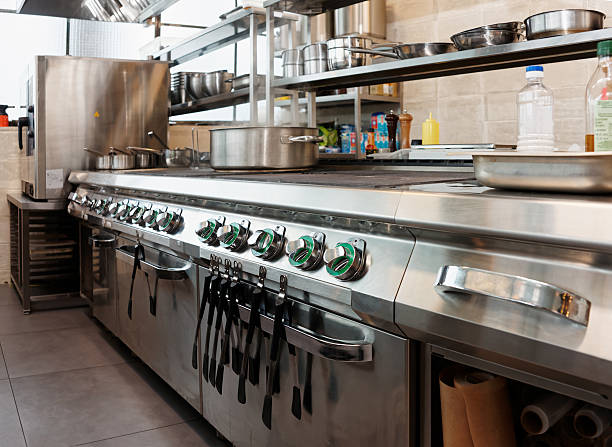For those who have yet to explore the realm of used restaurant equipment, it might be time to consider the potential benefits. Many restaurant owners turn to pre-owned equipment to save substantial sums of money, whether they are setting up a new establishment or replacing aging items. In an industry as notoriously challenging as the restaurant business, cost savings are always in demand, and used restaurant equipment presents an opportunity for significant financial relief.
While used equipment can indeed be obtained at a fraction of the cost of new appliances, there are some vital considerations when venturing into the market for pre-owned items. Here, we delve deeper into the factors to weigh:
- Source from a Reputable Seller:
The importance of dealing with a reputable seller cannot be overstated. Just as with any used purchase, it’s crucial to ensure the seller has a good reputation and can be trusted to provide equipment in good working condition. Reputable sellers should be open to your inquiries regarding equipment specifics, such as warranties and functionality.
- Investigate the Equipment’s History:
A reliable seller should be able to furnish you with the equipment’s history, including its initial purchase date and usage frequency. While not every seller may possess this information, it’s advisable to inquire and explore online reviews about the product. A comprehensive understanding of the equipment’s past can influence your decision-making process significantly.
- Warranty Availability:
In many cases, used restaurant equipment retains its original warranty, or the previous owner may have extended it. Although you need not necessarily shy away from equipment lacking an active warranty, knowing the details of the warranty can provide extra peace of mind when purchasing pre-owned items. The warranty’s terms and coverage can be a critical factor in your decision-making process.
- Evaluate Energy Efficiency:
In today’s environmentally conscious era, energy efficiency is a paramount concern for many restaurateurs. Reducing your environmental footprint is essential, as higher energy consumption can inflate utility bills significantly. It’s essential to research the energy efficiency of any used equipment you intend to purchase and evaluate whether the savings from buying it outweigh potential long-term energy costs. Understanding the specifics of the equipment’s energy usage can help you make informed decisions about its long-term impact on your operational expenses.
- Inquire About Operation and Maintenance:
Understanding the operational intricacies of restaurant equipment is essential before making a purchase. Some equipment is more user-friendly than others, and it’s crucial to assess whether your kitchen staff will find it easy to operate. Additionally, you should seek guidance on maintenance to ensure the equipment remains in excellent working condition and adheres to safety standards. A comprehensive understanding of how to operate and maintain the equipment can lead to smoother integration into your kitchen operations and contribute to its longevity.
- Assess Suitability for Your Restaurant:
Lastly, it’s essential to ensure that the equipment not only fits within the designated space in your restaurant but also serves a practical purpose and justifies the investment. When introducing a new item to your kitchen, particularly if it’s not a direct replacement, meticulous consideration of space and utility is paramount. Assessing whether the equipment aligns with your restaurant’s specific needs and constraints is crucial for a successful integration.
Used restaurant equipment holds the potential for substantial savings. However, to make the most of this opportunity, restaurateurs must approach the purchase of pre-owned items with the same level of consideration and diligence they would apply when acquiring new equipment. By adhering to the guidance outlined above, you can make informed choices that benefit both your bottom line and the efficiency of your restaurant. These considerations offer a comprehensive perspective on the intricacies of purchasing used restaurant equipment, providing you with the tools to make strategic investments for your business’s success.

